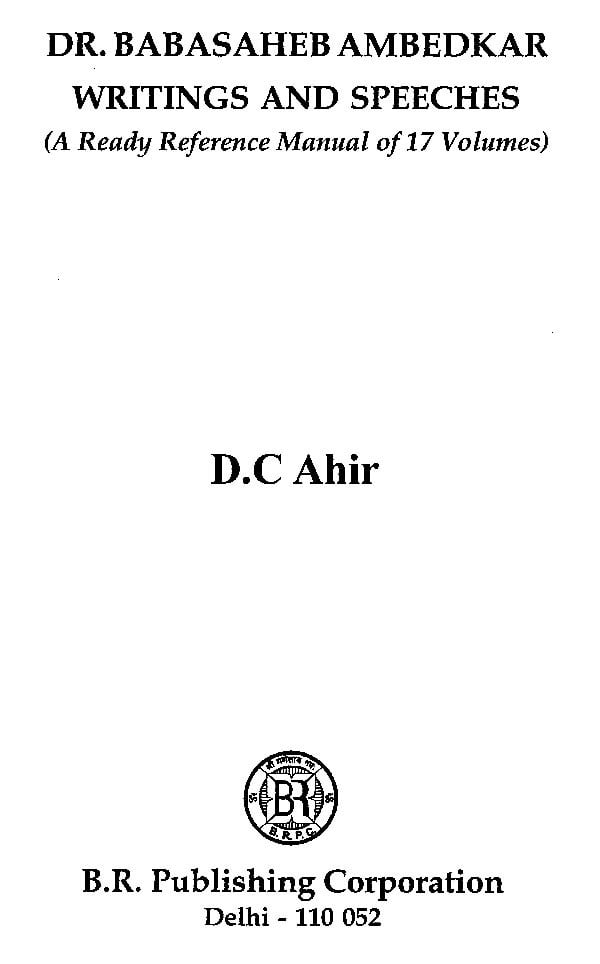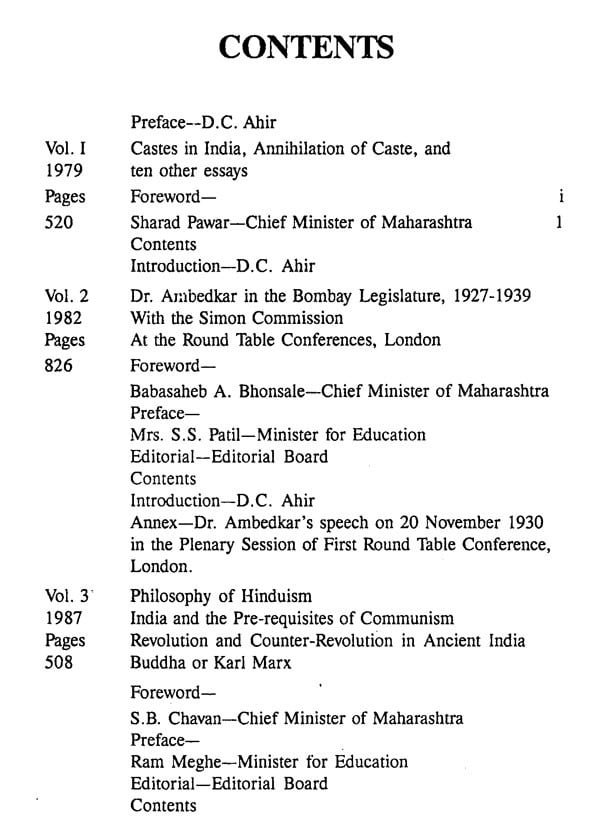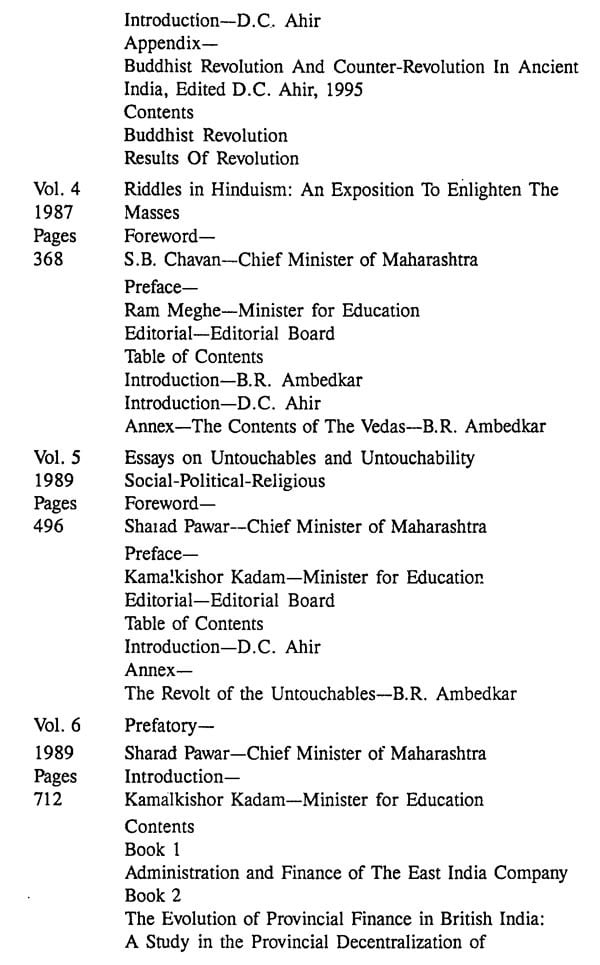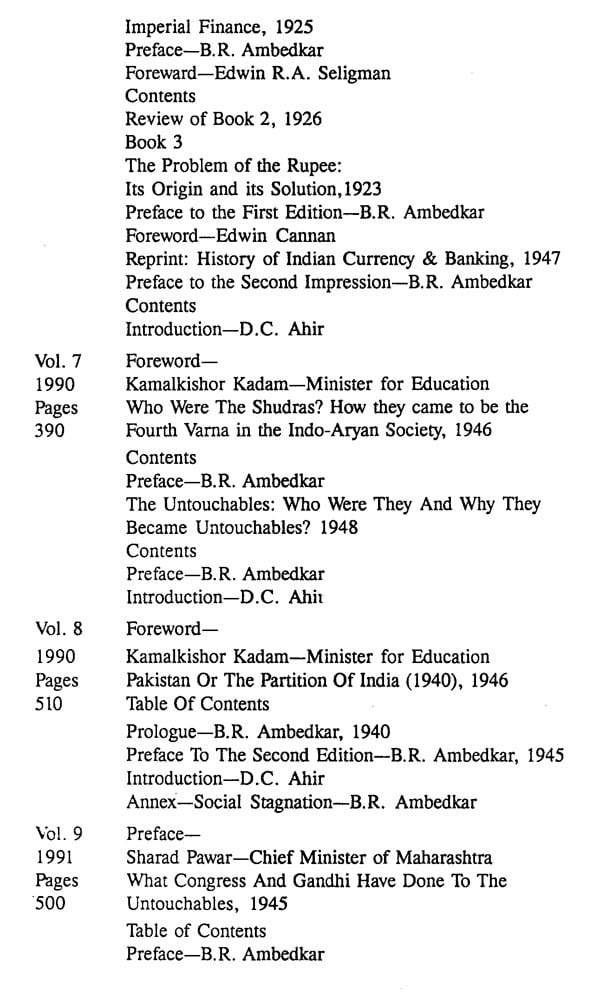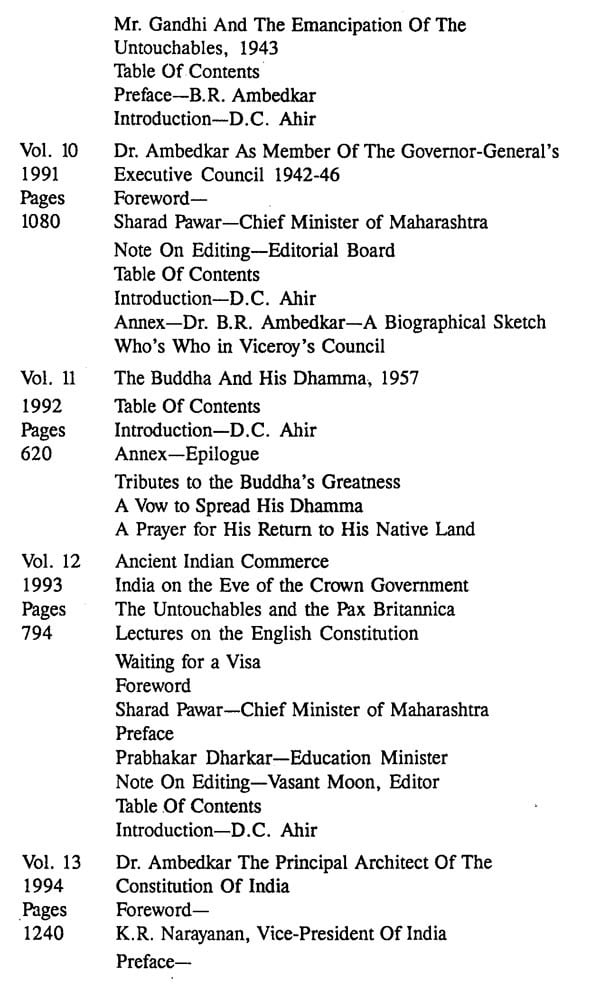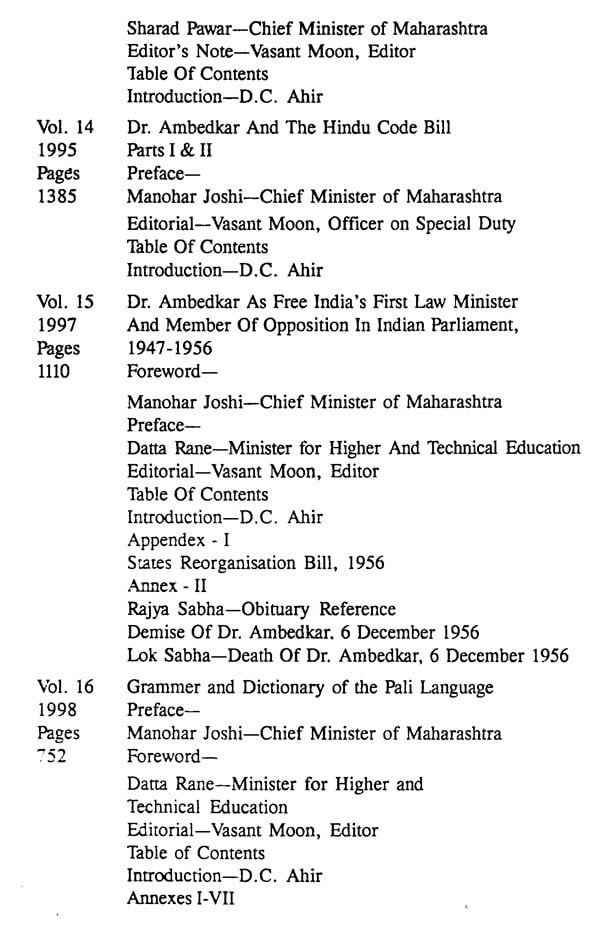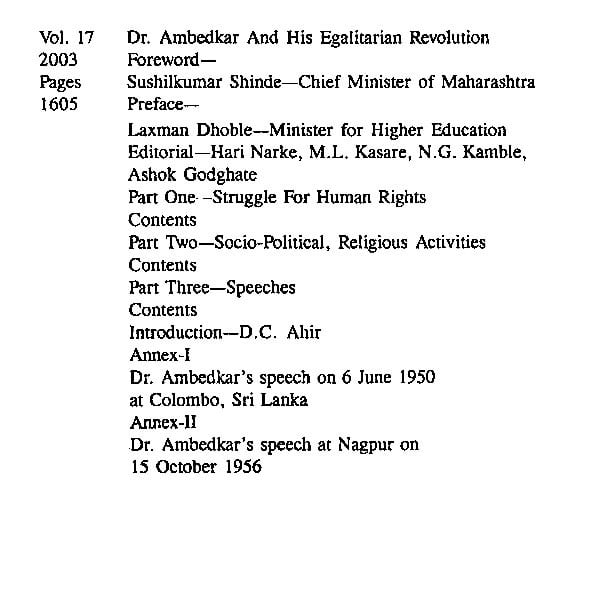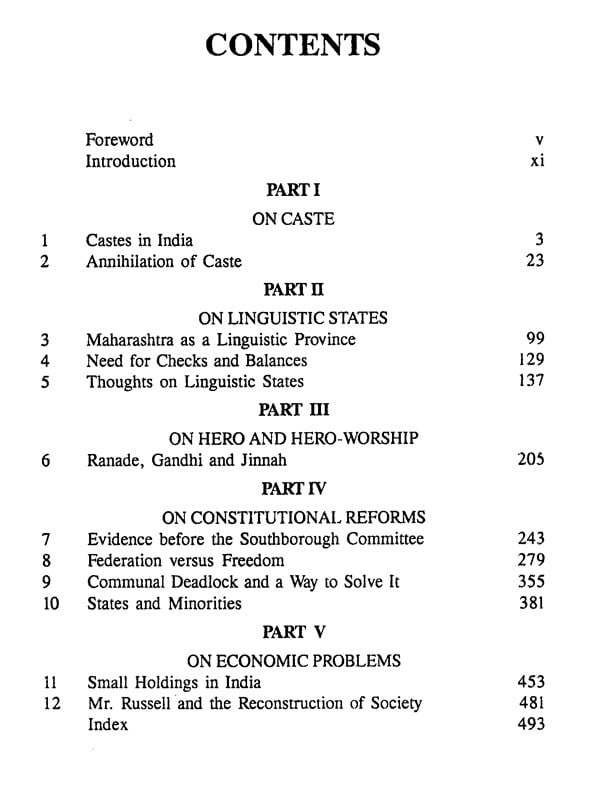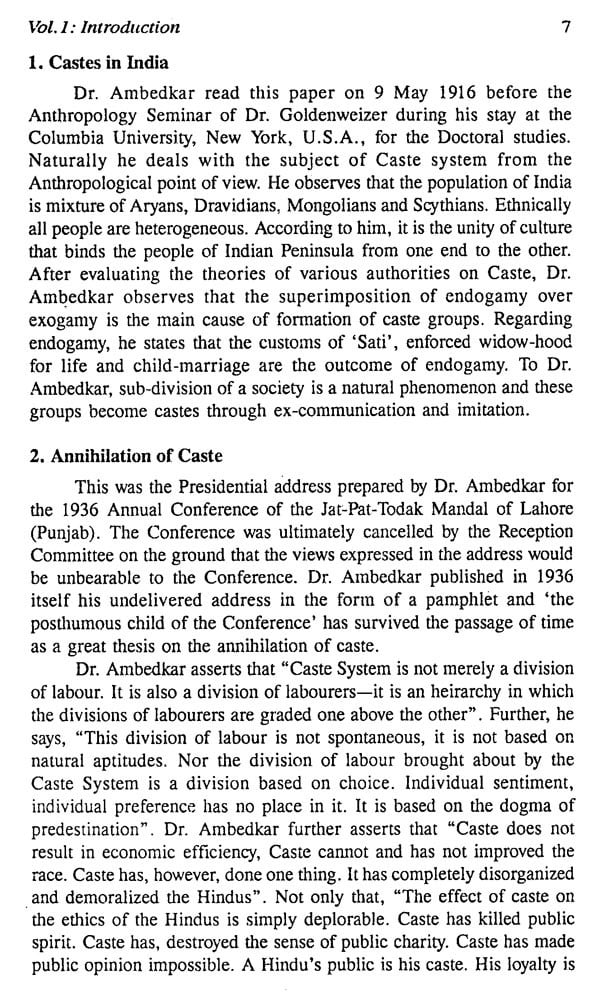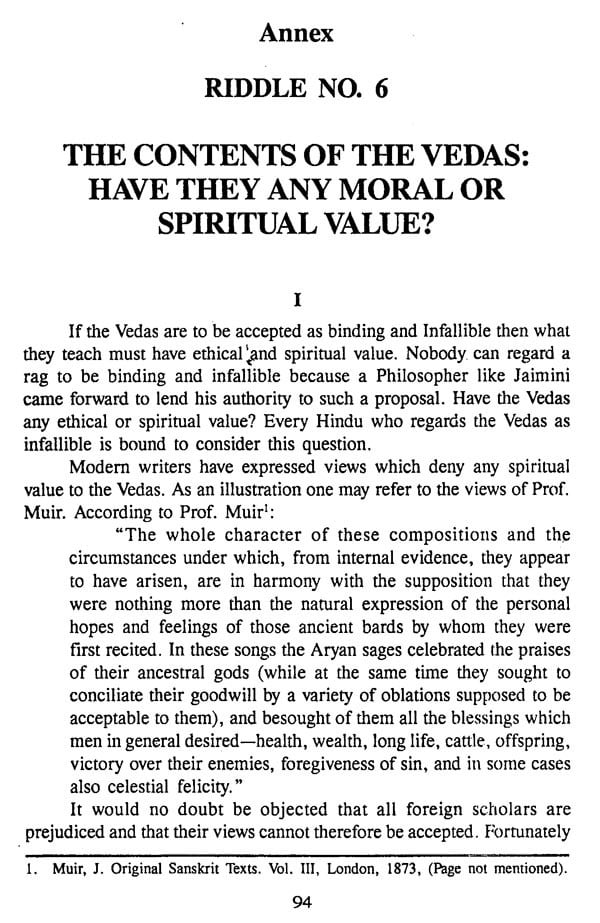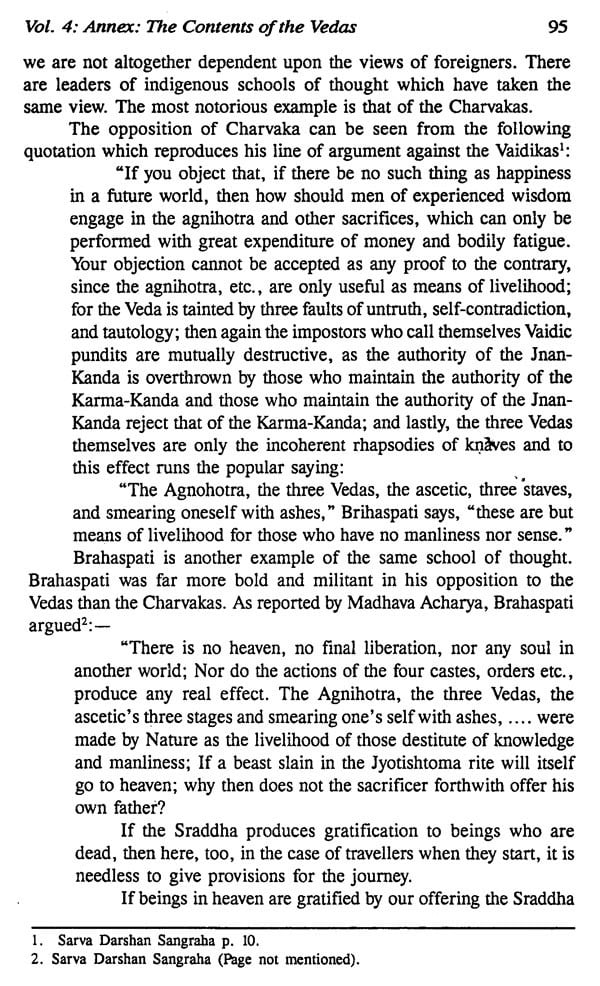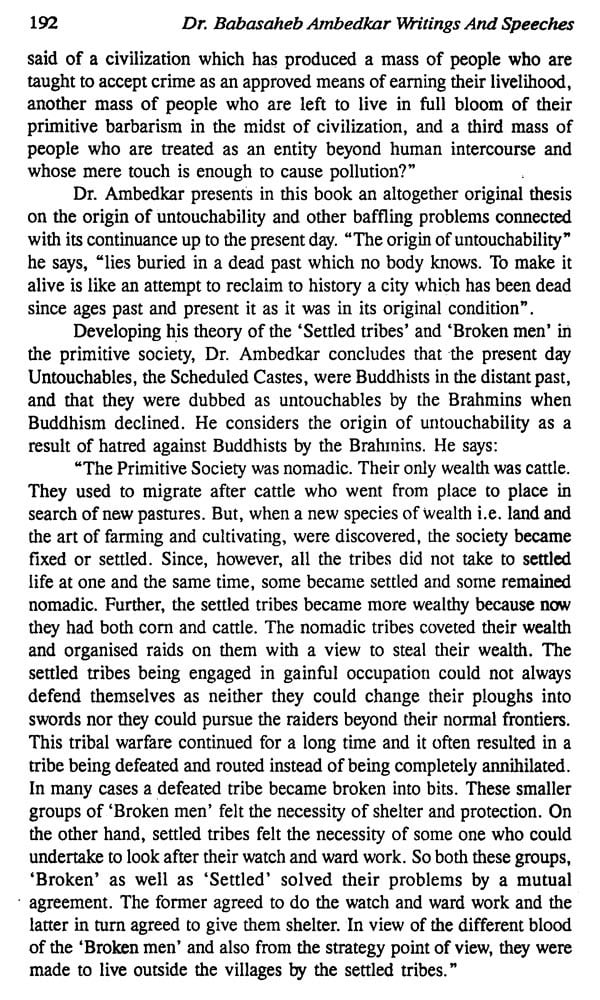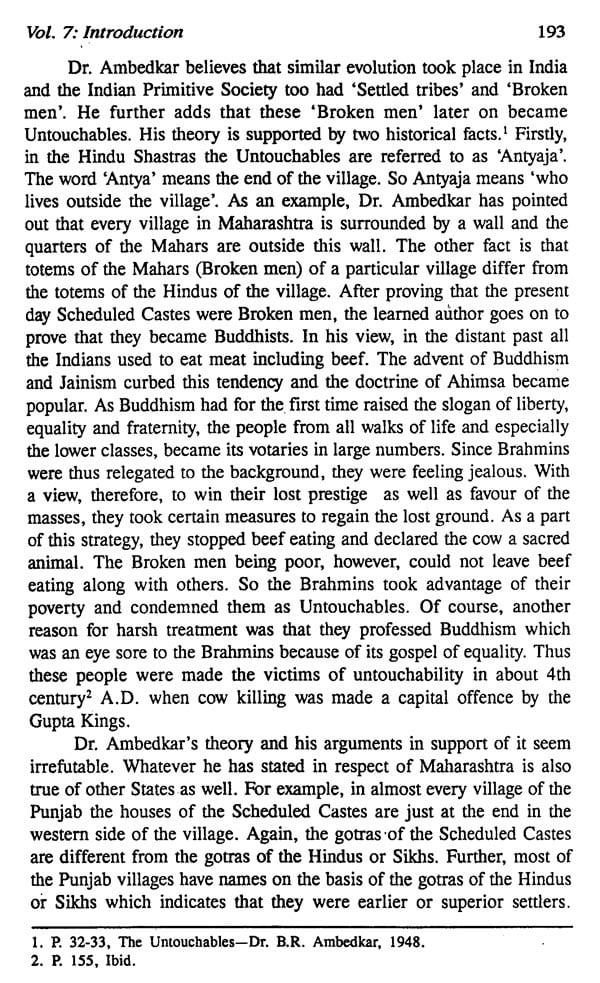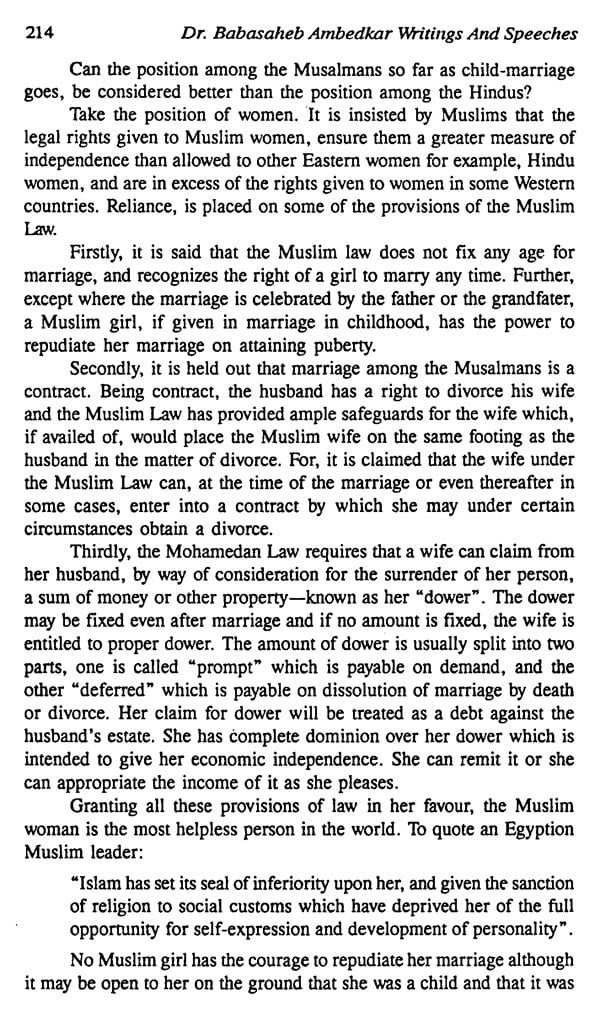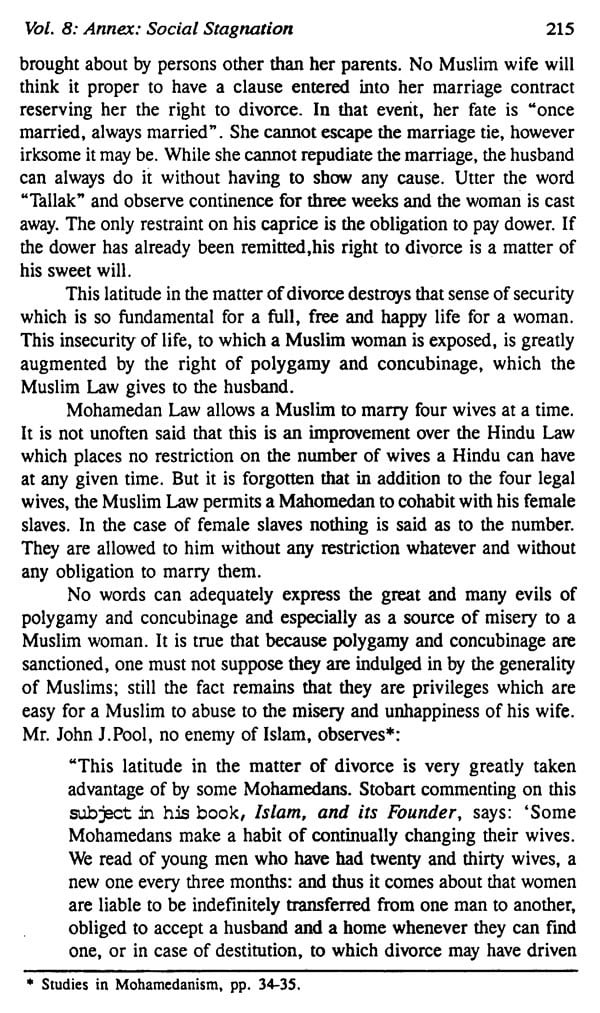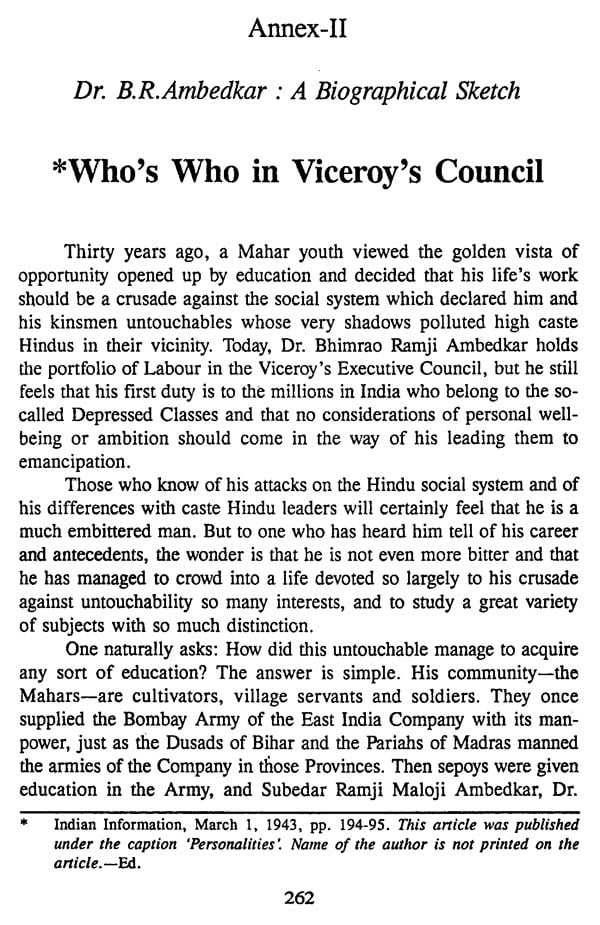
Dr. Baba Saheb Ambedkar Writing and Speeches (A Ready Reference Mannual of 17 Volumes)
Book Specification
| Item Code: | AZE558 |
| Author: | D.C. Ahir |
| Publisher: | B.R. Publishing Corporation |
| Language: | ENGLISH |
| Edition: | 2020 |
| ISBN: | 9788176465632 |
| Pages: | 470 |
| Cover: | HARDCOVER |
| Other Details | 9.00x6.00 |
| Weight | 670 gm |
Book Description
Maharashtra, an ancient land in the Deccan, has witnessed the flowering, growth and spread of the Buddhist thought and culture and Sanskrit Scholarship. We have saints like Named, Eknath, Chokhamela, Sawata Maharaj, Gora, Dhyaneshwar, Sena and others. We also see the rise of Indian Nationalism in the form of Shivaji the Great. In Mahatma Phuley, a contemporary of Karl Marx, we have the 'patria protestas' of the Indian social revolution and the first leader of the peasants. Lokmanya Tilak has been accredited as the Father of Indian unrest, Ranade as the Father of Indian socio-economic thought, Gokhale as the thinker whom no less a person than Mahatma Gandhi acclaimed as his political Guru and Savarkar as an ardent revolutionary. In Shahu Chhatrapati, we had a unique king who was a relentless fighter for social equality. Maharshi Shinde was a great social reformer who combined revolutionary fervour with a liberal attitude. Thus, there has been a galaxy of great men in different fields in Maharashtra. It may not be too much to say that there was a time in pre-independent India when Maharashtra had virtually become the centre of all activities, whether social, economic or political. The period from Phuley to Ambedkar can, therefore, be aptly described as the dawn of social revolution in the history not only of Maharashtra but of the country as a whole.
In Dr. Babasaheb Ambedkar, we have not only a crusader against the caste system, a valiant fighter for the cause of the downtrodden in India but also an elder statesman and national leader whose contribution in the form of the Constitution of India will be cherished forever by posterity. In fact his fight for human rights and as an emancipator of all those enslaved in the world gave him international recognition as a liberator of humanity from injustice, social and economic.
Dr. Ambedkar's first work be published was "The Problem Of Rupee: Origin This was his degree Philosophy Columbia University, New York, U.S.A., and was published in 1923 P.S. King & Ltd., London. His second book Evolution Provincial Finance British India: Study In Provincial Decentralization Of Imperial Finance" was also published by P.S. King Son, London, 1925. This was thesis the degree Doctor Science (D.Sc.) earned University London, London. The other important thought-provoking books written.
by Dr. Ambedkar were:
Thoughts
2. What Congress Gandhi 3. Who Were Shards? How They came Fourth Varna in the Indo-Aryan Society, 1946.
4. Who And Why They Became Untouchables, 1948.
5. The Buddha And Dhamma, 1957.
The salient features of all these books, pamphlets etc. have been presented well in the 'Introduction' by the Editorial Board to this volume and the same have been retained excepting those on Annihilation of Caste, Thoughts on Linguistic States and Ranade, Gandhi and Jinnah, which have been revised by me.
**Contents and Sample Pages**
